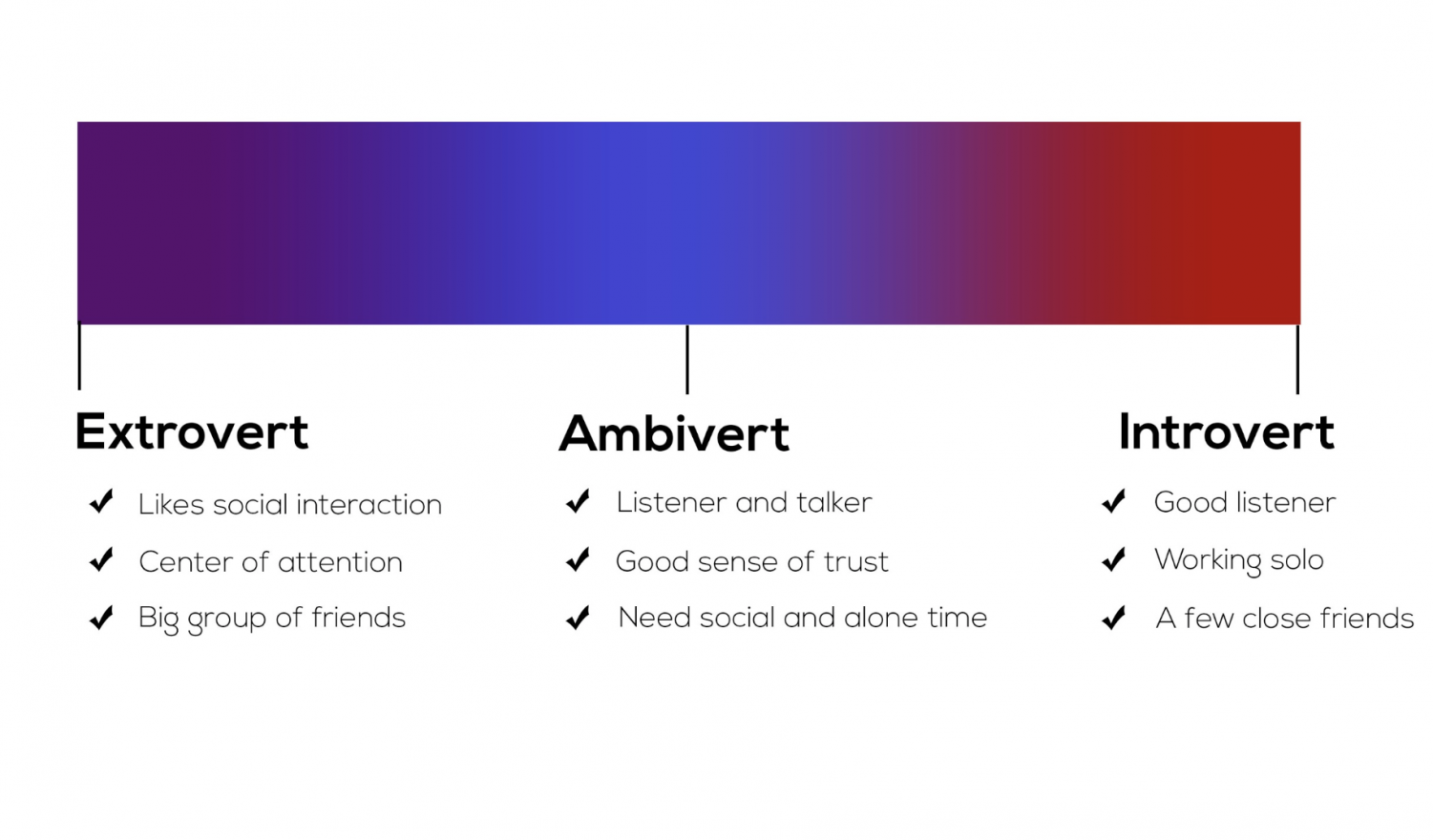Ambivert is the balance between introvert and extrovert

Ambivert: The Balance Between Introvert and Extrovert

In the realm of personality types, most people fall into two categories: introverts and extroverts. Introverts tend to be quiet, introspective, and recharge their energy by spending time alone. On the other hand, extroverts are outgoing, social, and gain energy from being around others. Yet, not everyone neatly fits into one of these boxes. Enter the ambivert, a person who possesses a harmonious blend of introverted and extroverted traits.
Ambiverts are individuals who exhibit both extroverted and introverted tendencies, striking a balance between the two. Although the term “ambivert” was initially popularized by psychologist Hans Eysenck in the 1940s, it has gained substantial attention and recognition in recent years. Many people find solace in identifying as ambiverts, as it offers a more accurate representation of their personality traits.

Ambiverts possess qualities of both introversion and extroversion, allowing them to adapt their behavior according to the situation. They possess a remarkable ability to empathize with others while also valuing their alone time. This balance enables ambiverts to excel in social settings without feeling drained, but also to embrace solitude when needed. It provides them with a unique set of advantages in various aspects of life.
One of the greatest strengths of ambiverts lies in their communication skills. They are adept at striking a balance between listening and speaking, making them excellent conversationalists. Ambiverts are known for their ability to engage with people on a deeper level, making them well-liked by others. This skill often leads to effective leadership, as ambiverts possess the ability to understand different perspectives and build strong relationships.
Additionally, ambiverts are adaptable in nature. They can easily switch gears between socializing and working independently. Being flexible and versatile allows them to connect with a wide range of individuals and thrive in different environments. Ambiverts often excel in professional settings where collaboration and teamwork are required, as they are comfortable navigating both group dynamics and individual tasks.
Research suggests that ambiverts tend to be more emotionally stable compared to those who lean more towards the extreme ends of the introversion and extroversion spectrum. This stability translates into better decision-making and the ability to handle stress effectively. Ambiverts are less likely to experience the pitfalls associated with introversion, such as excessive isolation, or the challenges faced by extroverts, such as overstimulation.
In conclusion, ambiverts offer a unique perspective and set of qualities that bridge the gap between introverts and extroverts. They possess the social skills of extroverts and the ability to self-reflect of introverts. With their balanced nature, ambiverts are highly adaptable, emotionally stable, and excel at communication. Harnessing the strengths of both introverts and extroverts, ambiverts bring a valuable blend to the table, making them a significant force in today’s society.
Source: HuffPost
Share
Related Posts
Quick Links
Legal Stuff

